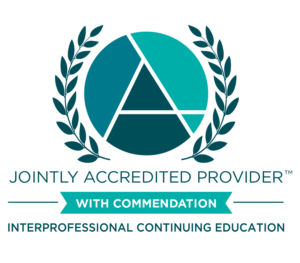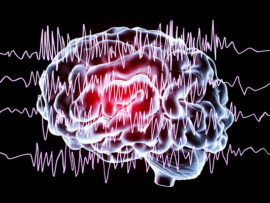Extreme Heat Case Study (20 min.)
Periods of extreme heat are becoming more common due to climate change. In this course learners will learn more about the impacts of extreme heat, so they can be prepared to assist people whose health is at risk. This module uses videos from subject matter experts, community members, and a case study to illustrate how extreme heat can affect people’s health, who is at greatest risk, and what interventions can help reduce risk.
$10.00
Description
Periods of extreme heat are becoming more common due to climate change. In this course learners will learn more about the impacts of extreme heat, so they can be prepared to assist people whose health is at risk. This module uses videos from subject matter experts, community members, and a case study to illustrate how extreme heat can affect people’s health, who is at greatest risk, and what interventions can help reduce risk. This module is part 4 of 7.
Learning Objectives:
At the conclusion of this educational program, learners will be able to:
-
- Recognize how extreme heat can affect health.
- Describe who is at greatest risk.
- List interventions that can help improve health outcomes.
- Locate resources for you and your clients or patients.
- Recognize different interventions during climate hazards that local government, clinicians, community-based organizations, and individuals can implement.
 In support of improving patient care, Boston Children’s Hospital is jointly accredited by the Accreditation Council for Continuing Medical Education (ACCME), the Accreditation Council for Pharmacy Education (ACPE), and the American Nurses Credentialing Center (ANCC), to provide continuing education for the healthcare team.
In support of improving patient care, Boston Children’s Hospital is jointly accredited by the Accreditation Council for Continuing Medical Education (ACCME), the Accreditation Council for Pharmacy Education (ACPE), and the American Nurses Credentialing Center (ANCC), to provide continuing education for the healthcare team.
Physician
Boston Children’s Hospital designates this live activity for a maximum of 0.5 AMA PRA Category 1 Credits ™. Physicians should claim only credit commensurate with the extent of their participation in this activity.
Nurse
Boston Children’s Hospital designates this activity for 0.5 contact hours for nurses. Nurses should only claim credit commensurate with the extent of their participation in the activity.
Physician Assistants
Boston Children’s Hospital has been authorized by the American Academy of Physician Associates (AAPA) to award AAPA Category 1 CME credit for activities planned in accordance with AAPA CME Criteria. This activity is designated for 0.5 AAPA Category 1 CME credits. PAs should only claim credit commensurate with the extent of their participation.
Pharmacy
This activity carries a maximum of 0.5 contact hours. Pharmacists should only claim credit commensurate with the extent of their participation in the activity.
Psychology
Continuing Education (CE) credits for psychologists are provided through the co-sponsorship of the American Psychological Association (APA) Office of Continuing Education in Psychology (CEP). The APA CEP Office maintains responsibly for the content of the programs. This course has been approved for 0.5 continuing education credits.
Social Work
As a Jointly Accredited Organization, Boston Children’s Hospital is approved to offer social work continuing education by the Association of Social Work Boards (ASWB) Approved Continuing Education (ACE) program. Organizations, not individual courses, are approved under this program. State and provincial regulatory boards have the final authority to determine whether an individual course may be accepted for continuing education credit. Boston Children’s Hospital maintains responsibility for this course. Social workers completing this course receive 0.5 ACE CE continuing education credits.
MOC II
Successful completion of this CME activity, which includes participation in the activity, with individual assessments of the participants and feedback to the participants, enables the participant to earn:
0.5 MOC points in the American Board of Pediatrics (ABP) Maintenance of Certification (MOC) program
0.5 MOC points in the American Board of Internal Medicine (ABIM) Maintenance of Certification (MOC) program
Disclosure Policy
Boston Children’s Hospital adheres to all ACCME Essential Areas, Standards, and Policies. It is Boston Children’s policy that those who have influenced the content of a CE activity (e.g. planners, faculty, authors, reviewers and others) disclose all relevant financial relationships with commercial entities so that Boston Children’s may identify and resolve any conflicts of interest prior to the activity. These disclosures will be provided in the activity materials along with disclosure of any commercial support received for the activity. Additionally, faculty members have been instructed to disclose any limitations of data and unlabeled or investigational uses of products during their presentations.
Disclosure Statement
The following planners, speakers, and content reviewers, on behalf of themselves, have reported the following relevant financial relationships with any entity producing, marketing, reselling, or distributing health care goods or services consumed by, or used on patients:
| Name, Degree | Entity Name, or None |
| Alan Woolf, MD, MPH | None |
| Marissa Hauptman, MD, MPH | None |
| Meg Blanchet | None |
| Kate Adams, ScD | None |
| Catherine Brown, DVM, MS, MPH | None |
| Alicia Fraser, DSc, MPH | None |
| Rachel Gladstone | None |
| Terry Howard | MA Department of Public Health – Employee |
| Melanie Jetter, MS | None |
| Nalina Narain, PhD | None |
| Shalini Shah, DO | None |
| Mariangelí Echevarría-Ramos, MPH | None |
| Nicole Fina | None |
| Juan Soler Ramos | None |
| Sarita Hudson | None |
Additional information
| Credit Type | AAPA Category 1 (Physician Assistant), ABIM MOC Part II (Physician), ABP MOC Part II (Pediatrician), AMA PRA Category 1 Credits™ (MD, DO, NP, PA), APA CE (Psychologist), ASWB ACE (Social Worker), Contact Hours (Nurse, Nurse Practitioner), CPE Pharmacy |
|---|---|
| Duration | |
| Format | |
| Topic | Environmental Health, Allergy/Immunology, Equity, Diversity, Inclusion, General Pediatrics |
| Expiration Date | |
| Release Date |






